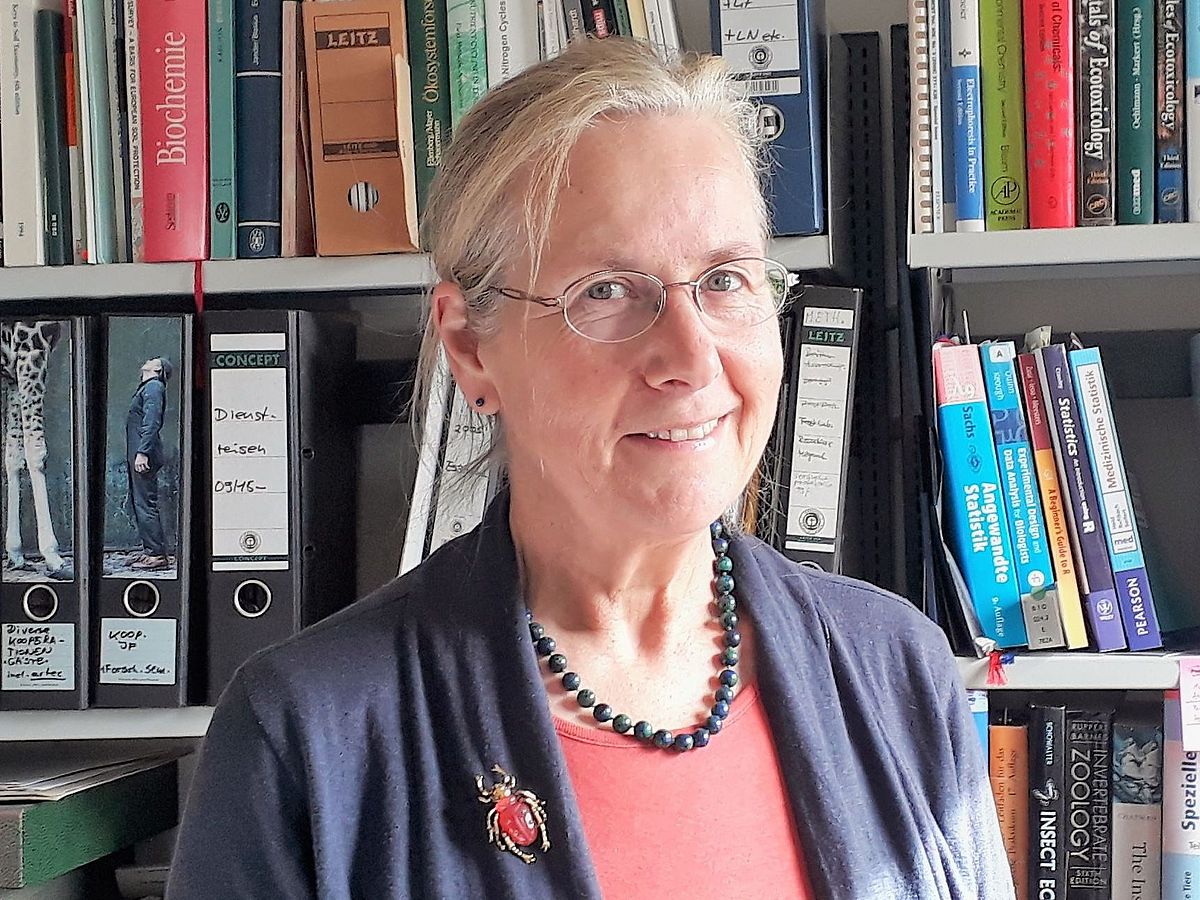Prof. Dr. Juliane Filser (Kopie 1)

Juliane Filser studied biology at the Ludwig-Maximilians University of Munich. For her doctoral thesis and postdoc time she worked at the GSF Institute of Soil Ecology in Neuherberg, specializing in soil zoology and ecotoxicology, particularly of heavy metals. Between 1995 and 1998 she was managing director of FAM, then Europe's largest agroecosystem research network, followed by several longer stays at the National Environmental Research Institute in Silkeborg, Denmark. In 2000 she took over the chair of general and theoretical ecology at the University of Bremen, and since 2008 she is vice director of the UFT Center for Environmental Research and Sustainable Technology. Her group's research activities cover environmental hazards, with an emphasis on soil ecology, ecological interactions and prospective assessment of potentials and risks of emerging technologies. From 2006 onwards she has concentrated on environmental risks and benign design of nanomaterials, leading various larger research networks in this field. Since about 2012, the role of soil amendments and soil fauna in carbon cycling has increasingly come into focus. Current projects deal with mixture toxicity, with special respect to pesticides and soil contamination.
Potapov, A. M., Guerra, C. A., van den Hoogen, J., Babenko, A., Bellini, B. C., Berg, M. P., Filser, J., ... & Scheu, S. 2023. Globally invariant metabolism but density-diversity mismatch in springtails. Nature communications, 14(1), 674. https://doi.org/10.1038/s41467-023-36216-6
Heděnec, P., Jiménez, J.J., Moradi, J., Domene, X., Hackenberger, D., Barot, S., Frossard, A., Oktaba, L., Filser, J., Kindlmann, P., Frouz, J, 2022. Global distribution of soil fauna functional groups and their estimated litter consumption across biomes. Scientific Reports 12:17362, Article number: 17362. https://doi.org/10.1038/s41598-022-21563-zh
Fischer, J, Evlanova, A, Philippe, A; Filser, J., 2021. Low concentrations of copper oxide nanoparticles are toxic in three loamy soils. Environmental Pollution 270, 116084.
https://doi.org/10.1016/j.envpol.2020.116084
Li, L., Xu, Z., Kah, M., Lin, D., Filser, J., 2019. Nanopesticides: A Comprehensive Assessment of Environmental Risk Is Needed before Widespread Agricultural Application. Environ. Sci. Technol. 53: 7923-7924; https://doi.org/10.1021/acs.est.9b03146
Zhang, X., Xu, Z., Wu, M., Qian, X., Lin, D., Zhang, H., Tang, J., Zeng, T., Yao, W., Filser, J., Li, L., Sharma, V.K., 2019. Potential environmental risks of nanopesticides: Application of Cu(OH)2 nanopesticides to soil mitigates the degradation of neonicotinoid thiacloprid. Environment International 129, 42–50. https://doi.org/10.1016/j.envint.2019.05.022
Schaefer, R., Liess, M., Altenburger, R., Filser, J., Hollert, H., Roß-Nickoll, M., Schäffer, A., Scheringer, M., 2019: Future pesticide risk assessment: narrowing the gap between intention and reality. Environmental Sciences Europe201931:21. https://doi.org/10.1186/s12302-019-0203-3
McKee, M.S., Engelke, M., Zhang, X, Lesnikov, E., Köser, J., Filser, J., 2017: Collembola reproduction decreases with aging of silver nanoparticles in a sewage sludge-treated soil. Front. Environ. Sci. 5: 19. https://doi.org/10.3389/fenvs.2017.00019
Filser, J., Faber, J.H., Tiunov, A.V., Lijbert Brussaard, L., Frouz, J., De Deyn, G., Uvarov, A.V., Berg, M.P., Lavelle, P., Loreau, M., Wall, D.H., Querner, P., Eijsackers, H., Jiménez, J.J., 2016. Soil fauna: key to new carbon models. Soil 2, 565-682. https://doi.org/10.5194/soil-2-565-2016
McKee, M., and Filser, J., 2016. Impacts of metal-based engineered nanomaterials on soil communities. Environmental Science: Nano 3, 506-533.https://doi.org/10.1039/C6EN00007J
Baumann, J., Köser, J., Arndt, D., Filser, J., 2014b. The coating makes the difference: Acute effects of iron oxide nanoparticles on Daphnia magna. Science of the Total Environment 484: 176-184. https://doi.org/10.1016/j.scitotenv.2014.03.023
Filser, J., Wiegmann, S., Schröder, B., 2014: Collembola in Ecotoxicology - any News or just Boring Routine? Applied Soil Ecology 83: 193-199. https://doi.org/10.1016/j.apsoil.2013.07.007
Buse, T., Ruess, L., Filser, J., 2013. New trophic biomarkers for Collembola reared on algal diets. Pedobiologia 56: 153-159. https://doi.org/10.1016/j.pedobi.2013.03.005
Filser J, Arndt D, Baumann J, Geppert M, Hackmann S, Luther EM, Pade C, Prenzel K, Wigger H, Arning J, Hohnholt MC, Köser J, Kück A, Lesnikow E, Neumann J, Schütrumpf S, Warrelmann J, Bäumer M, Dringen R, von Gleich A, Swiderek P, Thöming J., 2013. Intrinsically green iron oxide nanoparticles? From synthesis via (eco-)toxicology to scenario modelling. Nanoscale 5: 1034-1046. https://doi.org/10.1039/C2NR31652H
Matzke, M., Arning, J., Stolte, S., Uebers, U., Filser, J., 2009. Ionic liquids in soils: Effects of different anion species of imidazolium based ionic liquids on wheat (Triticum aestivum) as affected by different clay minerals and clay concentrations). Ecotoxicology 18: 197-203. Preis der GDCh-Fachgruppe Umweltchemie und Ökotoxikologie 2010. https://doi.org/10.1007/s10646-008-0272-3
Navarro, E., Baun, A., Behra, R., Hartmann, N.B., Filser, J., Miao, A.-I., Quigg, A., Santschi, P.H., Sigg, L., 2008. Environmental behaviour and ecotoxicity of engineered nanoparticles to algae, plants and fungi. Ecotoxicology 17: 372-386. https://doi.org/10.1007/s10646-008-0214-0
